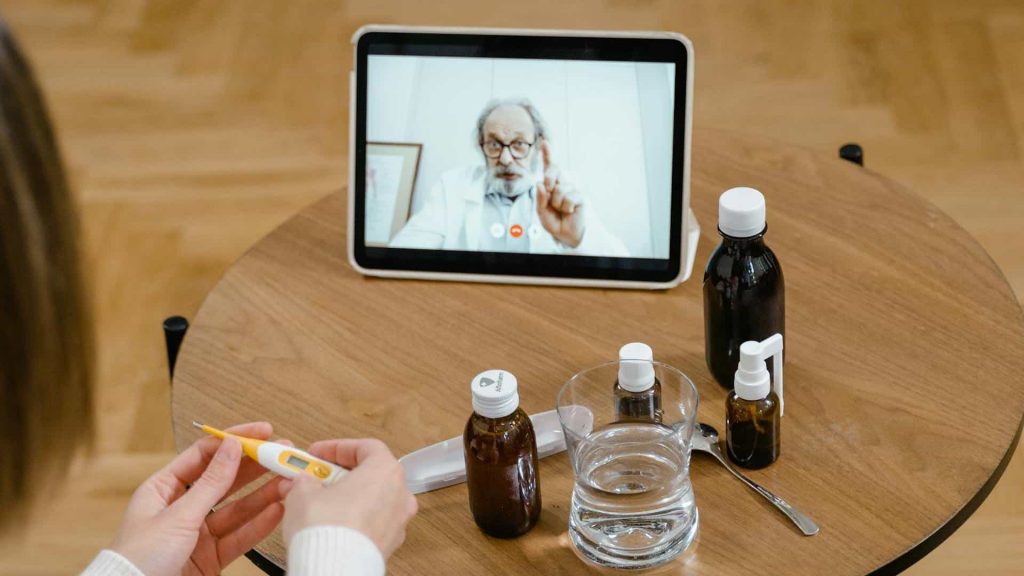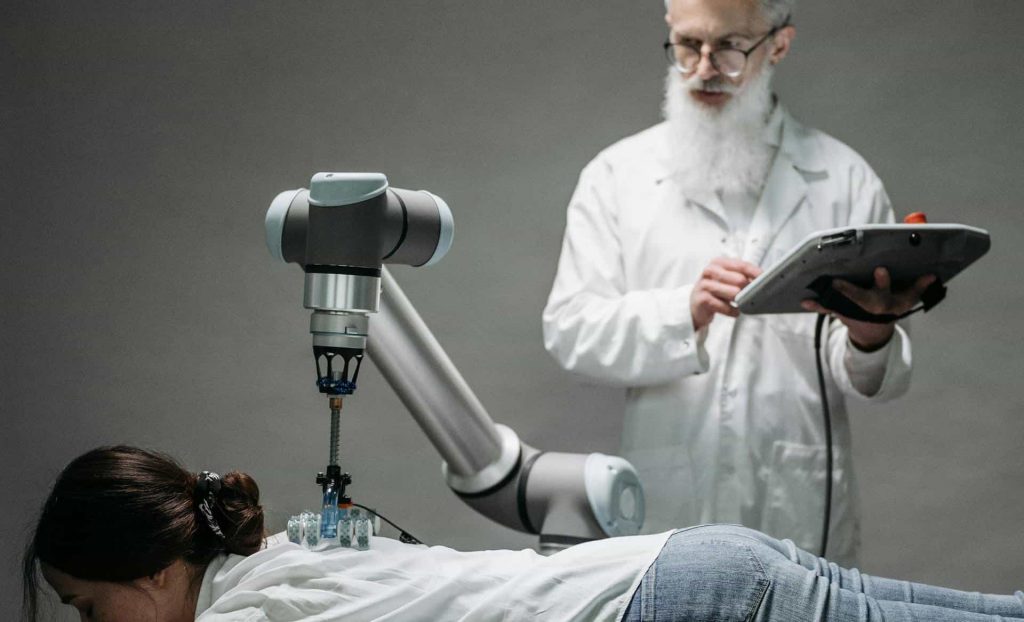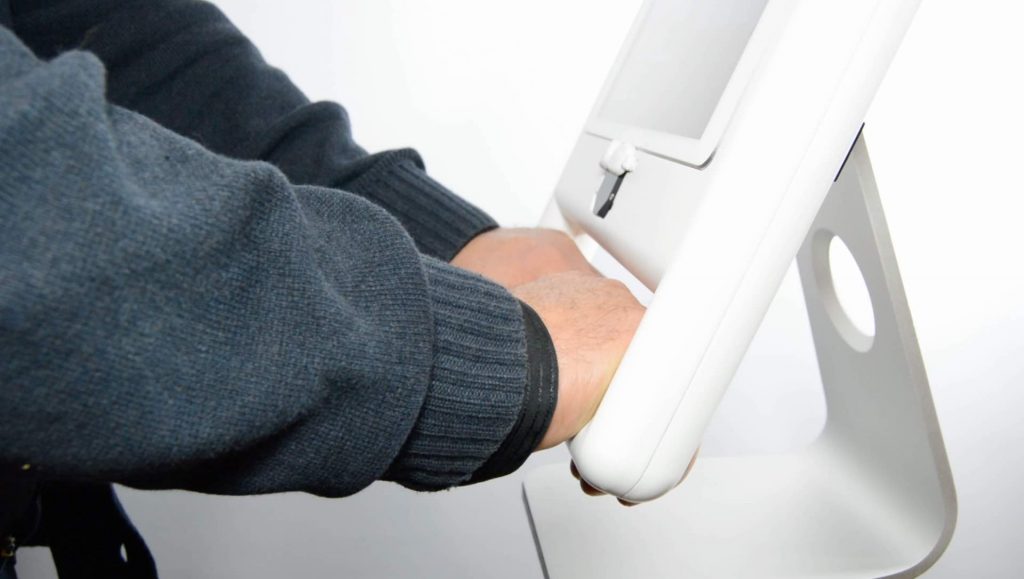Some digital health trends are just that: trends. But others are actually fantastic, ad life-improving. That’s what we’ll be covering in this article.
We’ve researched across many fields and a ton of companies and have gathered some of the most fascinating digital health trends you should be on the lookout for.
Precision Diagnostic Assistance
One of the big digital health trends is data. As always. Health data in particular, is extremely complex. But AI systems are beginning to learn how to spot, diagnose and communicate negative health effects.
We’re no longer relying solely on lab techs to spot microscopic changes in an MRI. Instead, advanced algorithms are combing through medical imagery pixel by pixel, flagging anything even slightly suspicious.
For conditions like Alzheimer’s or rare genetic disorders, early detection can be a literal lifesaver. Because let’s face it: the sooner you know, the more you can do about it.
Personalized Treatment Optimization

For years, treatment has been a bit of a guessing game—especially for complex diseases like cancer or autoimmune disorders. We try one therapy, cross our fingers, and if it doesn’t work, oh well, time to try another.
AI is allowing us to learn from millions of others with similar ailments. What has worked? What hasn’t? who, in particular, did it work for? It will become much easier to develop comprehensive and custom plans and treatments that fit each individual patient.
Mental Health Accessibility and Continuous Support
Mental health has always been the overlooked corner of healthcare, but AI-driven platforms are starting to give it the spotlight it deserves. Picture an app that doesn’t just regurgitate self-help quotes but actively monitors your emotional well-being.
You vent into a chatbot at 2 a.m., and it picks up on anxiety cues, offering real strategies—or connecting you to a human therapist if things escalate.
For folks in remote areas or stuck on waitlists for in-person therapy, this could be the difference between getting help today or months from now. It’s not perfect, but it’s a game-changer in bridging those mental health gaps.
Surgical Precision and Medical Training

It’s one of the toughest professions known to man or woman. However, one of the faster growing digital health trends over the past few years is in the surgery field. While surgeons have years of training and are extremely precise, new tools are appearing on the market in an attempt to eliminate (as much as possible) any human error.
AI is helping in a big way (again…). Artificial intelligence is enhancing surgical training. In some places, VR is helping with the training as well. Not to mention, many surgeons are using robotic-assisted tools to aid with the surgery process.
Epidemic and Pandemic Prediction and Management
We just lived through a global pandemic, so we all know how crucial early warnings can be. AI can sift through zillions of data points—global travel patterns, climate shifts, even social media chatter—to forecast possible outbreaks.
The idea is to catch anomalies before they spiral out of control. If a city sees an unusual spike in flu-like symptoms, AI can send an alert to local health authorities: “Might want to investigate. This could be the next big one.” If that means we avoid another fiasco of lockdowns and toilet paper hoarding, I’m all for it.
Holistic Wellness Ecosystem
For decades, “healthcare” has been code for “treating you once you’re already sick.” The future looks more like a holistic ecosystem—diet, exercise, mental well-being, sleep, and stress management all woven together. New technologies stand at the center, giving you meaningful, cross-sectional advice.
Obviously, AI is in the mix. But also, mental health apps, new wearable tech, monitoring key biomarkers like heart rate variability. It’s not just about lowering your blood pressure anymore; it’s about everything from improving your sleep hygiene to managing your morning stress triggers.
Essentially, we’re inching closer to a reality where early prevention becomes the star of the show instead of a footnote.
Workplace Health Technology

Who still uses those dusty blood pressure monitors in the office lounge? Hardly anyone. Next up: HRV monitors that literally track your stress in real time, maybe discreetly positioned like a desk ornament. Feeling that 3 p.m. slump? The device might beep, reminding you to step away from spreadsheets and decompress for a sec.
Your boss might even encourage it—less stressed employees = fewer sick days and higher productivity. And no monthly membership for some half-baked app, which is nice.
Workplace wellness and corporate wellness technology has become one of the hottest digital health trends. Products like the AIO Health Bar allows employees to track their health, stress levels, and more, in real time. This will become a big trend in the years to come.
Health Sensors in Vehicles
Imagine your car noticing your stress levels are spiking—maybe your heart rate leaps while navigating that rush-hour traffic. The vehicle’s system might ping you: “Dude, you’re tense. Take a minute or I’m activating autopilot.”
Or in self-driving cars, AI could double-check the driver’s wakefulness. (Yes, autonomous doesn’t always mean you get to nap in the back seat… yet.) It sounds futuristic, but with accidents often caused by drowsy or distracted driving, these built-in health sensors could save lives.
Health Monitoring of Pilots
Commercial pilots already undergo strict medical checks, but those are periodic. We’re talking continuous in-flight monitoring that reads stress, HRV, or even early signs of dehydration. If something’s off, the cockpit gets an alert—or the ground crew does, so they can prepare for an unscheduled landing if necessary.
Might sound intrusive, but when you’re responsible for a few hundred passengers at 35,000 feet, having real-time health data is a safety net that’s tough to argue against.
AI Brain Chips
This one’s borderline sci-fi. Brain-computer interfaces (like Neuralink) aren’t just for controlling prosthetic limbs or exploring the edges of what’s humanly possible. In digital health terms, direct brain monitoring could someday detect early warnings of seizures or strokes.
It could also refine mental health therapy—maybe stimulate specific brain areas to alleviate depression or anxiety. Sure, we’re not there yet, but the pace of research is insane.
Don’t be surprised if in a decade we’re having serious conversations about “brain updates” the way we do with phone software patches today.
Continually Improving Remote Patient Monitoring
We’re wrapping it all up in the mother of all digital health trends: remote patient monitoring. Chronic patients used to have to schlep to the doctor’s office for every checkup. But now, advanced sensor kits and telehealth apps let them track vitals at home—heart rate, blood glucose, lung function—sending the data to clinicians in real time.
If something goes sideways, both the patient and the doctor know immediately, not in a week or two after a missed appointment. It’s a game-changer for managing conditions like diabetes, COPD, or hypertension. Less time in waiting rooms, more actual care.
Bottom line? Digital health is no longer just a buzzword. We’re finally seeing technology that addresses real-world problems—lack of access, late diagnoses, impersonal treatment, you name it. Sure, not every concept will pan out, and we’ve got big questions about data privacy and cost. But if even half of these trends become mainstream, healthcare could look drastically different (and infinitely better) than it does today. Here’s hoping the hype turns into real, tangible changes for everyone.

